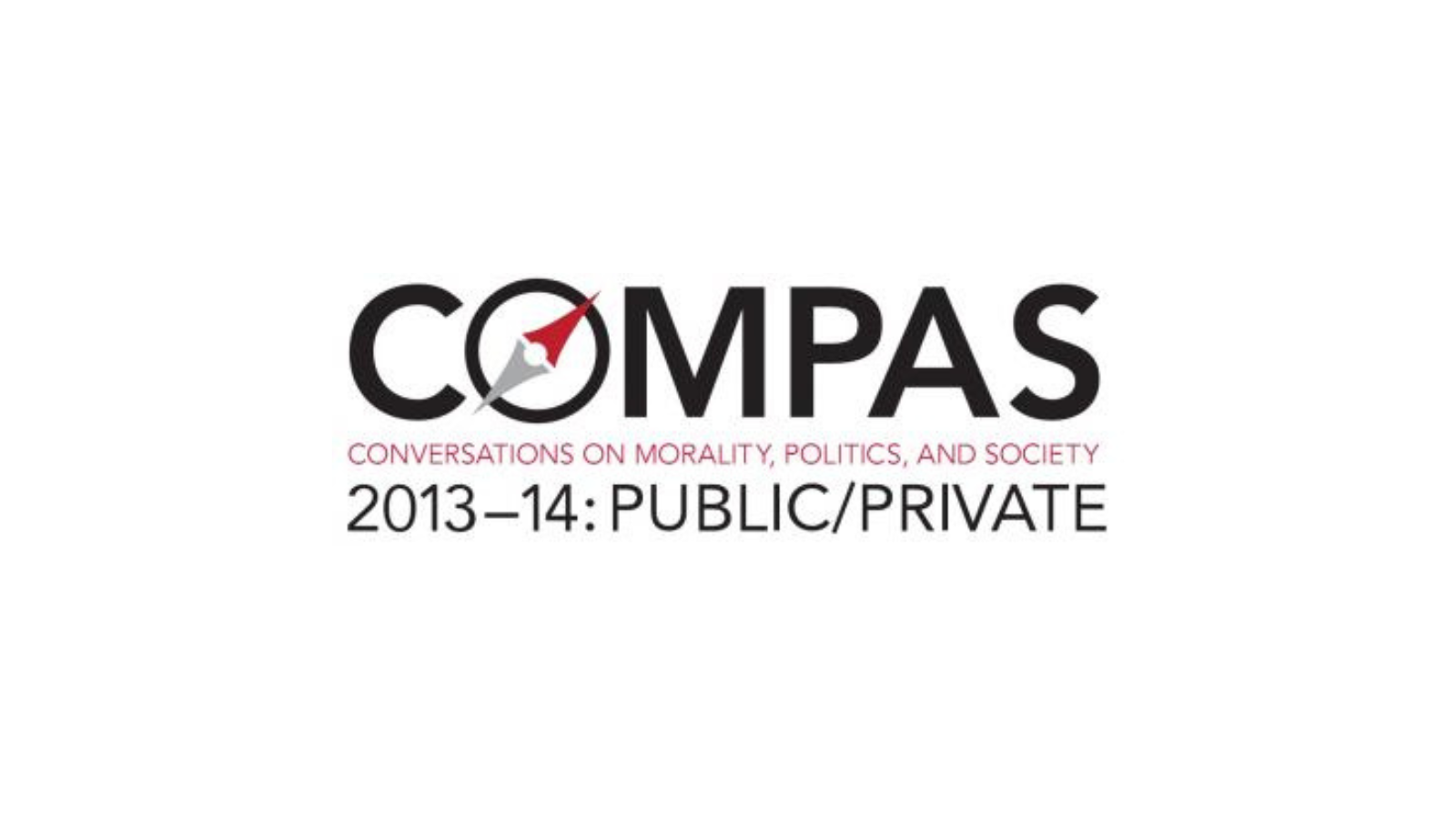Continuing Conversations: COMPAS
In 2011, under the leadership of Don Hubin, the OSU Center for Ethics and Human Values Innovation Group introduced the Conversations on Morality, Politics, and Society (COMPAS) program. The goal of COMPAS is to mobilize Ohio State’s vast intellectual resources to promote civil and informed discussion of controversial issues. That first COMPAS focused on immigration.
It was so successful that we were able to move forward with the second COMPAS, supported by the College of Arts and Sciences and its division of arts and humanities. In 2013-14 COMPAS focuses on the distinction between public and private, a theme that connects a wide range of pressing policy questions and scholarly debates.
Governments have considered privatizing a range of previously public services such as prisons, roads, schools, and the military. At the same time, proponents of social justice have argued that we should sometimes be made publicly accountable for our behavior in “private” domains such as the workplace and the family. Developments in information technology, genetics, and neuroscience raise new moral, legal, and practical questions about personal privacy. Internet use and social media have changed how we conduct our personal and social lives in ways that invite reflection on the distinction between public and private activity.
The way in which society defines the boundary between public and private also has important implications for the question of how to live a good life. Should there be a sphere of private behavior that is immune from public scrutiny? If so, then how large should this sphere be, and what areas of life should it contain? Should some public functions be performed only by public (politically accountable) actors? If so, then which functions, and why?
The COMPAS program includes two interdisciplinary conferences, numerous COMPAS Colloquia, and a series of related events throughout the year.
The fall conference, Public & Private: Oppositions and Opportunities (October 3-4) explored such issues as the privatization of “essentially governmental functions,” such as military activities, policing and corrections, public/private roles in education, and privacy and public health.
Cass Sunstein (Law, Harvard), former director of the Whitehouse Office of Information and Regulatory Affairs, delivered the keynote address, “Deciding by Default,” which explored innovative ways to structure default outcomes in order to respect individual choices while promoting desirable outcomes for the individual and society. In a coordinated event, the Humanities Institute presented “Health Care Reform and the Future of American Medicine,” a talk by Dr. Ezekiel Emanuel, former Whitehouse Special Advisor on Health Care Policy.
The spring conference will take a turn toward more foundational issues, including historical and cross-cultural perspectives on the relationship between what is public and what is private and distinctively philosophical and normative questions about the nature and value of privacy and the relationship between the private and public spheres. To learn more, visit the COMPAS website at www.compas.osu.edu.

